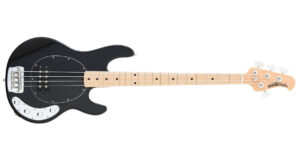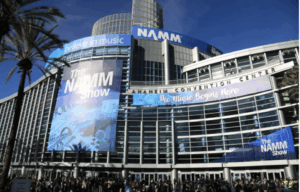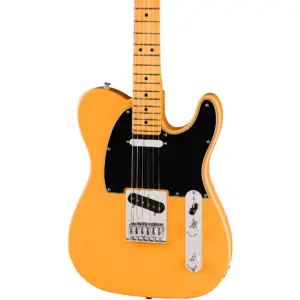Introducing Mithoon; an esteemed composer, a profound lyricist, a periodic yet fervent singer and a very humble, down-to-earth musician anchored with an impervious and well established value system. Born into a prestigious family of musicians, he grew up literally worshipping the art form. It was an everyday affair, an everyday ritual.
As such, pursuing music as a lifetime career became inevitable. We discuss his initial inclinations towards Jazz and other World music elements, his major influences and how they’ve shaped his craft, his unwavering mindset towards music from Bas Ek Pal to Shamshera, and his perspectives on balancing emotions vs delivering technical precision.
We also touch upon intricacies of his compositions such as the significance of silences, derivation of lyrics, and the process involved in choosing the singers. He is a strong advocate of original compositions and independent music and believes there is a lot more to witness from his end.
How did a musical journey start and what were your early days like?
Okay, so I grew up in a family of musicians. I think most people know that I am the fourth generation music composer in my family. My great grandfather also was a musician. My grandfather, Pandit Ram Prasad Sharma, he has been a music composer himself, a trumpet player, and more importantly, he’s trained more than 5,000 musicians over a span of 40, 50 years, especially those aspiring musicians who came and later on became a big part of the Hindi film music industry.
And then my father, Naresh Sharma, who has been a very highly acclaimed music arranger, he’s done music arrangements for more than 200 films. So that’s the kind of environment I grew up in. I grew up in an environment where music was considered sacrosanct.
Every instrument was considered to be sacred. I would grow up as a kid, all I’ve seen is directors and music composers coming to my house to work with my father, to take notes from him, to take arrangements from him. So that’s the kind of environment I grew up in. I grew up in an environment where music was considered to be literally on the level of worship.
And if you do music, I was always told it has to be done properly. There are no shortcuts to it, there is no easy route to it. It is a ‘tapasya’, it is a sacrifice. And if you’re ready to do it, then touch the instrument. So that’s the kind of environment I grew up and I was very inspired by these energies around me and being surrounded by so many musicians in the family itself.
At the age of eleven, I decided to start learning music. I started learning at the age of eleven and I was initially training to be a concert pianist. I wanted to be a concert pianist. At the age of 16, I decided to learn to actually be a Hindi film composer. It was the works of the great Madan Mohan Sab, Laxmikant-Pyarelal and composers like these, whose works I was introduced to my father when I was a teenager.
My father would make me sit down and he would claim me the works of all these great composers. And that’s when I felt that this is something, this is really magic and this is what I want to do in life.
And at the age of 16, I decided to be a Hindi film music composer. I started working towards it and yeah, I continued my training. I started assisting my father by the time I was 18. I was this chief assistant when he was scoring background scores back then. And yes, at 19, thanks to God, I got a chance to do my first film. That was Zeher with Mohit Suri and after that never looked back again. So that’s how my beginning has been.
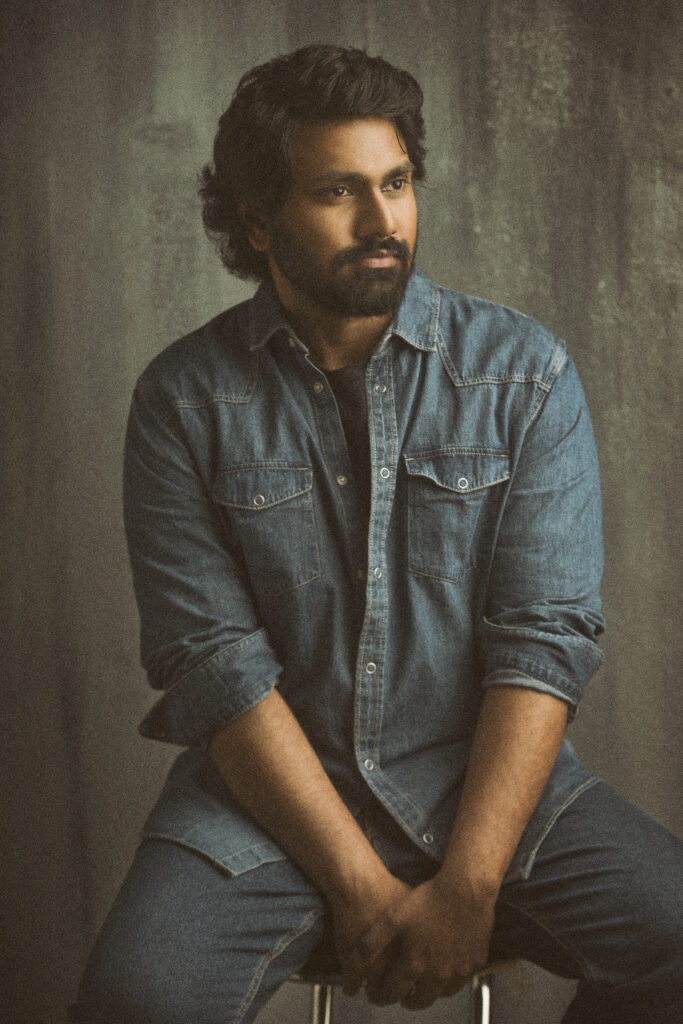
Next was music always on the forefront of your mind as a career path?
I would definitely like to say that I never had any plan B. I think music is not something that we choose, but rather music chooses us. I see it that way. There has to be a certain amount of madness, a certain amount of, I would say free spiritedness to do music because it is the path of creativity. It’s like getting into nothingness and getting something out of there.
So there was never any plan B for me, and it was always going to be music as if I was born for this reason. And I give the same advice to music younger composers today, aspiring composers, I tell them that, give it this your all. Don’t keep any apprehension in your mind, otherwise you’ll never be able to put your complete being into what this art asks for. So it was the same for me as well.
Did you have a genre of music that you are most inclined towards that has influenced your musical trajectory?
Okay, so I’ve been trained in jazz, Piano under my teacher and my mentor, Mr. Tony Pinto. And initially those progressions were very big influence on my music. If you listen to the music of Anwar, if you listen to Tose Naina Laage, or if you listen to the music of Bas Ek Pal, a lot of those progressions are something which kind of influenced my music.
Obviously, I was very fond of the world genre as well, which was I was introduced to that probably when I was in college and listening to artists like So, Susheela Raman and jazz artists like Miles Davis, Oscar Peterson, Chick Corea, the kind of modes that they would explore. It was very inspirational for me. I think it’s not that I’ve never been a purist.
I think Hindi film music demands you that you dwell into various different avenues and you create hybrids of your own depending on your own sensibilities. So that’s how my music has been. I think over the years it’s evolved also a lot and that’s a natural thing to be. But yes, I was definitely influenced a lot by jazz and world music elements even today in my sensibilities as a musician.
Next you had mentioned in a previous interview that deep down you have always wanted to be a singer but wasn’t ready to accept the fact. Have some of the ideologies and perspectives changed as time progressed?
I’m not sure, actually, because that’s not true. I don’t know when I said something to that and how it came across, but matter of fact is that I’ve never wanted to be a singer. That’s not something that I saw as my primary calling in life. Definitely it is a part of my job as a composer, yes, as an expressionist, as a poet, definitely it is a part of my job. But I never took my singing seriously.
I never intended to be a singer. Even the songs that I have sung I incidentally had to sing those because of professional commitments and time constraints and certain circumstances that come in the professional path. But I’ve never wanted to be a singer. I think it’s a specialist job and I have great respect for those who do it and who do it flawlessly.
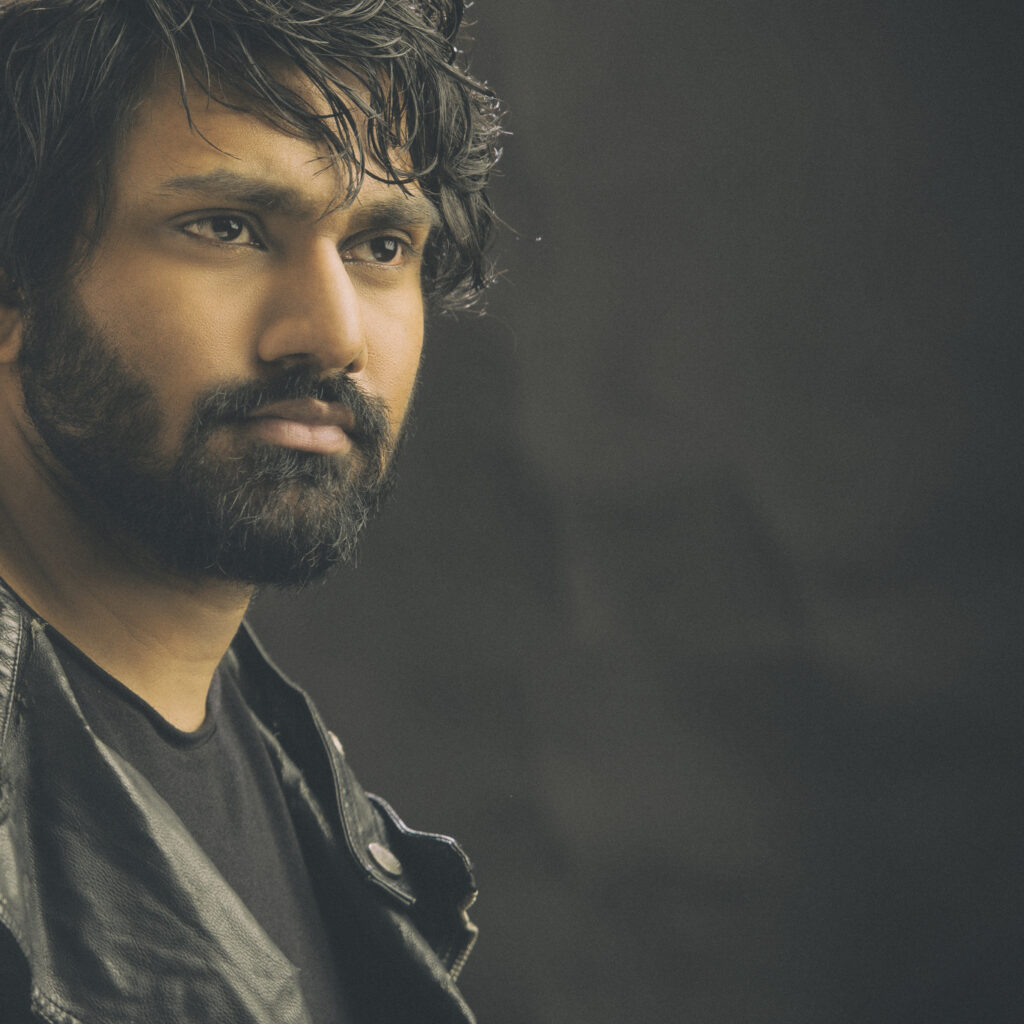
Who are some of your influences growing up and how have they impacted the different aspects of your musicality?
Okay, I think the biggest influence in my life as a musician comes from my father, Naresh Sharma, because I think the most important thing is he made everything look very easy. He made music look very natural to me because as a composer arranger, when I see him work, I never saw him under stress or I never saw him under any kind of pressure.
I’ve heard of incidences when he would be conducting for Laxmikant-Pyarelal and he would conduct 120 piece orchestra. He would conduct the interval scene for Coolie,the background score for it, and he would do it with a smile on his face. The most relaxed person at the studio where everybody else would be under tremendous pressure of performance and with delivering the best results.
So I think that was a very big, inviting factor for me, that music is part of our mind, body and spirit and it comes very naturally towards just the way probably we speak or we react or be emoted so that they are very important in the way I perceive music as an art and as a science.
Apart from that, I think Laxmikant-Pyarelal has been a very big inspiration for me because of the kind of bigness that they always had, how they always looked at music beyond limitations. I think they always broke barriers with the music, with the kind of arrangements that they did, with the kind of sound and the experimentation with the instrumentation that they did.
Apart from that, I think the melodies of Madan Mohan Sab, I think they are just timeless and they’re flawless. And how he would change modes and how he would change rags without even the listener coming to know.That was very, very it was literally like magic to the years, I think. So that was very, very inspirational for me.
Obviously, I would speak about A.R. Rahman because growing up as a kid to your A.R. Rahman and to see him be a catalyst for that transition, I think, which took place probably in the nineties. And his harmony sensibilities and his craft of merging Indian classical music with Hindi film sensibilities as well as Western classical. I think that was something that really influenced me a lot, honestly.
The melodies of John Williams, the kind of score that he did for Schindler’s List, the simplicity of it, or if you see the grandeur of Star Wars. I think these kind of elements, growing up really played a very big role in my mind as a musician. And more importantly, it made me fall in love with the craft, which I think is very, very important. So, yeah, I’m just grateful to them for this.
What was it like composing and writing your first original song Bas Ek Pal? And how have things changed in terms of the mindset you have and approaches you take when composing original music?
I think my mindset hasn’t changed. If you speak of basic, right up until now, if you speak of Shamshera, my mindset hasn’t changed at all. I think it’s always been about honesty. I have always been very careful that I don’t lose who I am. We are in a world today where we are surrounded by opinions, we are surrounded by trends, we are surrounded by various technologies and various analysis and theories.
But I always pray to God that I don’t get influenced by these things because the most valuable thing about me is what is within me. And I think that is the most important element for me as a composer songwriter. So, yeah, definitely recording techniques can change, your textures can change, your sound design can change.
But I think your mindset ,you’re very core, doesn’t change the way I look at a song or the way I write a song really hasn’t changed for me. I remember when I was 20 years old and I met director Onir and he asked me to play some of my work.
Even as a 20 year old starting out, I told him that, Sir, I don’t have a song bank because I don’t believe in the concept of song bank. Even today, I get multiple offers, but I tell all the people who come to me that I’m really grateful, but I don’t have a song bank to play.
I would want to spend time with you to understand what are you looking for and then react to that emotionally and technically and deliver what you are looking for. So I heard from Onir what he wanted. He was looking for an urban sounding song based on urban sensibilities, which reflects the darker side of relationships and the layers of a complex urban relationship.
That’s how Bas Ek Pal happened. And yeah, we created the kind of sound that was needed for it, the kind of pulse of the song needed. And my approach, even today, is the same. Even today when I’m right now working on a score , which is again a full score. So I just react to what the director would tell, and then we see that. How can we make the sound design more interesting that this follows? But the core is the song writing and the melody, which I think is the most important content of the song.
How do you balance technical precision and production and composition with expressing raw emotions? In brackets, it says, this would go hand in hand, but there are times when you may have to compromise one for the other.
Okay, I think it’s a very interesting question. We do speak about these things at the studio or when I was speaking to one of my directors. I think for me, as an artist, raw emotion has always been very important. I think it’s not something that needs to be consciously balanced. I could give you an example that if you listen to some of my songs, a few of the takes, maybe a line or somewhere.
Maybe the take that I have written will not be a pitch perfect take, but it’s made me feel something and that’s why I have retained it. I have gone for it. But then the most important thing to ask is: Why are you doing that? The way I see it, I think it’s part of my job to deliver something to my listeners which really stirs them up. And if that’s helping me in the process, it’s great.
But that really doesn’t justify just doing anything. Because music is a very strict art. It has a certain guideline that has certain parameters which you cannot play with. And we always respect that as priority. Be it pitch, be it timing, be it expression, be it the right frequency design, those things are very important. But yes, I do take those liberties. But I feel that if something wrong can just enhance the emotion of it and just add the beauty of the entire thing of it all, then I’m very open to something like that.
How do you choose your singers? Is there a systematic methodology or is it more instinctive?
I think it’s a combination of both. When I’m writing a song, when I’m hearing back something that maybe I have written as composed and I’m just hearing it back in my voice, there is always something that gives me a vocal image in my head of some artists around me.
But I would like to add that while I’m writing a song I never think about any singer who’s going to be singing it. Because when I’m writing a song or when I’m composing a song, for me the melody is paramount, right? So if the melody wants to go into a particular if I’m feeling the melody should rise to a particular range it should go to a register that may be a little high for a particular singer. I will not construct the melody because of a particular singer.
I will let the melody fly. I will let the melody be who the melody is. And once I’m happy with the melody, then I come to casting the singer. As you rightly said, sometimes it can be instinctive. I can just speak. I think this is his or her song. But then I must say that I’m very particular about casting my singer because there are technical reasons how you cast.
As we all know that every singer has a particular range and it’s very important to understand this thing for the betterment of the song, for the comfort of the singer, so that he or she can deliver her best. It’s very important for me to always make it a point to understand every singers range and their character in different registers before I cast them for a song so that I can get the best out of them and they can also shine when they’re singing a song for me.
So there are these technical parameters of range, diction style, also cultural influences on which part of the country they come from or which part of the world they are coming from. I think these things are very important for a composer to understand and it’s very important for people to know this.
I think even people who are not composers, who are not technically qualified to make a judgement I think it’s very important that they stay out of this because it’s a composer’s job to understand where a singer will sing, how will he or she sound and who’s the best singer for the composer song. That strictly remains only with the composer.
You have alluded to the concept of directors working with your silence as well. What do silences mean in your creations and how important are the silences?
I think it’s a beautiful question. Again, I think when I speak of silences in my music I’m not necessarily talking about sonic silence. I’m talking about the feeling that my music would probably give to my listeners.
I choose to believe that I have a very strong connect with my listeners in today’s times when people speak so much about social media numbers, for me personally, they don’t really matter for me. What matters is my connect with my listeners. That’s very important for me. And with the amount of love that the people have given my music that itself speaks volumes for me. And it’s very satisfying as an artist because I feel people connect with my music.
And even outside the nation for so many people to connect with the song. I think it’s a very fulfilling feeling. And for me, those silences are probably the kind of feeling that I give my listeners. So it may not necessarily be like a sonic silence or a complete pause, but maybe it could be a native flute that speaks of a silence. Maybe it could be just a couple of notes on the piano which just resonate and just melt over the part which comes after that.
It could just be something as simple as my opening riff of the piano notes. It could just mean they represent the silence. So I’m not talking about sonic silence. I’m talking about the feeling of silence, the feeling of Terab, as we call it in our culture. Because I feel that life, anyways, makes us run so much. So I think music has the potential to give us rest, to give us that momentary pause, to give us a few moments to catch up breath. And I think that’s what my job is as a composer. That to give people those highs and those silences as well.
So the importance of silences, I think my answer covers that I think it’s very important because without depth, height would have no meaning. Without darkness, light would have no meaning. So I think it’s very, very important that the amount of things we do, it’s very important to even do nothing. I think nothingness is highly underrated.
So I think that’s much the element that I really value in my life that I really celebrate in my life and I personally, as a human being, that hero is very, very important of being with yourself, of being true to yourself, of being one with your creator, I think whichever path you walk on. And that’s why I kind of reflect those sensibilities in my music as well.
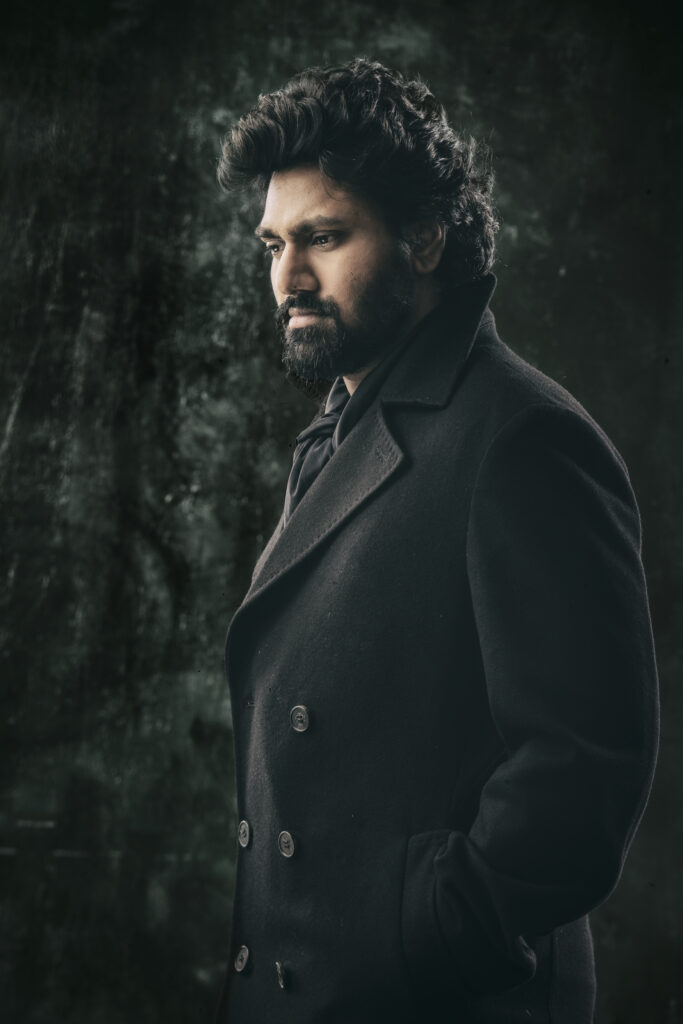
You are a very profound lyricist, to say, at least. Has writing always come nationally to you or is it a byproduct of your compositions or does it take precedence?
Yeah, I think you’ve said it rightly. It’s not something that comes naturally to me. It’s definitely maybe I would not choose the word byproduct because that may be a little harsh word for me as a creative person. But yeah, it’s something that just stems out of my melodies itself. If you have noticed in the initial part of my career, right after 2010, right after Murder 2, I never wrote any of my songs.
But I think I had the good fortune of working with some brilliant poets like Saeed Kadri, Amitabh Verma and lately I’ve been working with Manaj Muntashir also A.M. Turaz. And I feel that spending time with them, specifically Saeed Kadri, because I’m really close to him. I think it really helped me understand poetry a lot more and understand the relevance of poetry in Hindi cinema.
And when I’m writing a song today, I’m always chasing a feeling. It’s not that I’m always looking for a melody or I’m looking, for the lack of a better word, or I’m looking for a hit song that’s never something that I’m looking for. I’m always looking for a feeling. This is what I want to feel.
I’m always surrounded by a thought where my director would give me and I think in that process, when I sing like I was not supposed to write to Tum Hi Ho, but when Mohit Suri briefed me and when I was surrounded by those thoughts, I just came up with those lines of ‘Hum tere bin ab reh nahi sakte tere bina kya wajood mera…’. I think it just came very naturally to me.
And as you said, it was just an outcome of my melody. And I think because I did it once, people connected with it. And I felt if people are connecting with it, then it’s something that I should definitely continue doing. And even today I am writing some of my songs on certain films. I’m collaborating depending on what the director is looking for and what is the texture of the soundtrack.
You mentioned that you want to dig deeper into the genres and masala in the films and revive them. Does this mean you have to consciously unlearn or learn certain nuances about the way you compose and listen to music? And how do you navigate working in a realm outside your comfort zone?
Yeah, so I think I had said that when I was speaking about the music of Shamshera because working with Karan Malhotra was a very refreshing experience for me. I don’t think as an individual or as a single artist, I am in a position to bring back any genre or do that. That’s never been my intention also. But yeah, what I meant was that I really like working on the music of Shamshera and doing something like that for the first time.
For me, when I speak of masala as you use, what I mean was that my music has always been restrained. I’ve always done music for characters who have always been layered, complex, silent, restrained and keeping very internal characters. And I’ve tried to maintain those layers in the music as well. But here I was working with a character, Shamshera and Balli in the film, who were completely different. I’ve never done music for these kind of characters and I’m working with a director who doesn’t want my silences. As we spoke about earlier, he didn’t want that side of mine.
So I as a person also I choose my words very carefully but you’re speaking as a person who expresses but he wanted me to be loud, he wanted me to be brash. He wanted the music to literally have a sense of arrogance as well that comes from the character of Balli. So that was very interesting for me and obviously when you go back and you check Hindi cinema, the great and rich history of Hindi cinema, you will see that many films and characters have already done those kinds of paths.
They have been walked before.. of being arrogant, of being brash, of being in the face of saying things the way they are. Like when we were doing say, Ji Huzoor,for example, which is Ranbir’s intro in the film as Bali, I think that was a very refreshing change for me and doing it I realized that I really enjoyed doing this a lot. And while I am all open to evolution and there’s so much more to Hindu filming music today than probably it was 30, 40 years back, but I still feel that the inclusiveness of Hindi film music should always be maintained.
It’s not that we are not open to new avenues, but I think we shouldn’t forget who we are. Also, we are very proud of what this culture and what this fraternity has given us in its history and I would like to do more of these kind of things as well. And for me the comfort zone thing comes from there also because Shamshera wasn’t apparently my comfort zone but I enjoyed doing it so much that I think that I’ve just redefined the meaning of comfort zone.
I think whatever you enjoy doing and whatever you have a blast doing is exactly what you are comfortable in. So I would definitely like to do more of that personally. And that’s probably what I meant.
Also you had mentioned that in contemporary times there may be a slight shift in the balance between quantity and quality of music. What is quality control when it comes to music?
I think, once again, quality control is a very inorganic word for me. While I understand what the question is meaning to say, I think the concept of quality control for me in that sense is just honesty, which has not got to do with any changing times. Yes, I definitely feel that today there is a lot more content being put out because I feel that with so many modes of communication and so many different platforms, we have so much music that’s coming out, which may be a good thing also.
But in many ways I think it’s also not a good thing because I think it fills up the space with so much of content. I remember my father has told me that back in the in the 60s they would have the Binaca Geetmala, which would probably be a weekly thing.
And they would have ten songs that would play on radio and all of India would listen to them and all of India would know who’s made what those ten songs are. They would like some. They would not like some. That’s perfectly fine. But they would know that these ten songs are the new songs which have been released.
They would know who the actors are. They would know who the composer is. They would know who the lyricist is. I think Ameen Sayani and other anchors would specifically mention who’s composed the song, who’s written the song and who sung the song. And I think that’s why there was such a strong connect between the artists and their styles of their specific work. They all had their own zones and every listener knew the zone of each artist.
I think there was such a beautiful thing. And I feel today also good music is happening. I don’t have a negative opinion. I think that we have a lot of good artists in the country today. We have a lot of good music happening, but I think it should be just celebrated more. And I think that the burst of the digital mediums also encourages a lot of mediocrity. So I think people should be more responsible in that sense. Coming back to the question, I think I feel very responsible as an artist.
And I’ve always been right from the beginning of my career, if I do not connect to a particular film, or if I do not even connect to a song, or if I feel that it’s not what it should be, I have taken the decision to pull it back. There have been certain films where I myself and my director have taken a decision together to replace the song at the last minute because we feel that maybe it is not fitting into the story that well. So I think these kind of responsible decisions are very much needed.
I think every artist who can take these kind of calls should definitely do it. And yeah, ultimately it all comes down about being true to yourself. Right? We’d be doing this hard because we enjoy doing this and because we love it so much. So whatever we care for, whatever we nurture and we put out, I think that’s the ultimate responsibility that each artist has. That’s it.
How have the dynamics as a backend, sound engineer, composer, producer changed over the course of your career? Especially in lieu with all the advancements in digitalization and use of increasingly sophisticated technology? Is there more competition and therefore more pressure?
Okay. Yeah. So my perspective on this entire thing of technology is that for me, as a composer, songwriter, it’s definitely very interesting to know and to understand these advancements and what are the new mediums and new technologies which are coming in. I have a great blessing in my life who is Eric Pillai, who’s one of the best engineers that we have in the country.
And I connect with him on so many different levels. For every song that me and him, we understand. We speak about the song, we speak about the emotion, we speak about the production of it, and we don’t let go to the last minute. I feel blessed that I have somebody like Eric with whom I can discuss and I can share my vision with him and he brings it to life in such a beautiful way.
At the same time, I also feel that for me, I think these technologies have been made to make the music better. And it’s not that music has been made for the technologies. So for me, I think ultimately, as a songwriter, as a composer, what matters is the content. What matters the most is the emotion.
What matters the most is the poetry. You may get the best mike that you can, you may get the best mic, you may get the best chain of recording, but ultimately, what’s going to matter is what are you going to put inside it? And for me, that is the most valuable thing. I see these things as a blessing, definitely. The process, the advancements, it makes things a lot easier for us.
And that’s very important because if we can save time, if you can save stress, if we can save the process, I think it’s a blessing. And we would look for something like that. But that really doesn’t put any additional pressure on me, because for me, as a songwriter, it’s something which is irrelevant. I mean, I would just take two more and do something, but I have to be satisfied with what I have written, what I’m putting into it.
So the question of pressure does not arise at all. I see these things as making my job easier, as making the process easier. But the struggle is always going to be internal. It’s always going to be about what the feeling is, about the honesty and the honest of my music.
I think everything else after that is only about the process and about ultimately making sure that the song sounds the way it’s supposed to sound. And for that, whatever we use, we use it very happily, we value it. But the question of pressure doesn’t arise from me.
How do you envision the value chain of the music industry to change over the next few years and where do you see yourself?
I feel that it’s very important that every artist stands up to the value of his or her own music. I think music is a very, very sacred element in society. And even apart from society, even if we speak of the entertainment industry, I think music is a very valuable, very valuable means of communication. I think that process has to be respected.
The process of creating music has to be respected. The process of poetry has to be respected. The sanctity of a studio, of any studio. It could be a big studio, it could be a small studio, it could be a home studio, a car studio. I think the dignity and sanctity of it should be respected. And for that it’s very important that we are just first respected ourselves and we draw the boundaries for it. I think that’s the kind of responsibility that comes to us.
Because when we take that stand and when we respect what we do and we do not allow any kind of infiltration in that process, I think then obviously everybody will respect the process and they will see the way we see our own art and how important it is for us. When I say that, I do not mean that nobody else can be included in the process.
That’s not what I mean at all. I think music is a collaborative process. Specifically Hindi film music is a collaborative process. The director, his vision is very important for any composer. We see some great examples of how composers and directors have done some brilliant work together. So I’m not talking about that, but I’m speaking of standing up for the dignity of your own art. I’m speaking about protecting the sanctity of your own process, the sanctity of your own mind space.
And I think if that’s something that we as artists stand for ourselves, I think the world and everybody else will respect it and they will happily respect it without any conflict. To it. So I see myself in the same chain of responsibility. I’ve always tried to do that.
And I’ve been blessed with people who have always respected my music, have always respected the process. And I think it’s very important that every artist stands up for that.
Why do you think you resonate more with the soulful, soft acoustic or melodic genre? Are there any uncharted areas you are currently hoping to explore?
I think I personally myself really enjoy the acoustic genre. I really love a piano based piano voice based song, maybe a nylon string put into it and maybe a padding and I really love doing that. For me, less has always been more. So I think that’s something that comes from my personal taste once I do that and playing with the reverb and playing with the spaces and the textures.
It’s something that has really excited me over the years and I’m really grateful because the audience has loved so much. Whether we speak of Maula Mere Maula from Anwar, we speak of Beete Lamhein from The Train, we speak of Phir Mohabbat, even Tum Hi Ho was a very minimalistically produced song and I’ve enjoyed that. I’ve really enjoyed that over the years.
But at the same time, I think when you speak of uncharted territory, I think I definitely experimented with Shamshera and I realised I enjoyed that equally as much. So I think I’m in a very good space right now as a composer. I’m looking forward to doing all kinds of genres. I really want to do a Hindustani classical soundtrack.
I’m waiting for the right project that comes my way, which needs something like that. But I’m looking to experiment as well as do things that are of my personal taste as well. So completely with an open mind right now.
Next, as someone who is quite involved in creating original compositions, how do you view the independent scene and what changes would you like to see?
Yeah, as you rightly said, I think I’m all for independent original music. I strongly believe that recreating is not exciting at all for an artist. I did one myself a few years back for a film called ‘All is well’ (‘Mere Humsafar)’ , but after that I consciously decided not to do this and I didn’t want to be a part of it because I don’t think it is my calling.
I would definitely like to see a lot of aspiring composers and established composers also put out a lot of independent music. I think that’s a great thing that if as a culture we can create a culture where there is a stream of communication apart from Hindi films, I think that will be a very positive thing for the artists and the listeners as well.
My only concern would be or something that I would comment is that I think we should definitely have some kind of answerability to ourselves in terms of what are we putting out because I think that the social media blast or whatever you want to call it. I think a lot of people who don’t have the call or who don’t have that expression also seem to be believing that they are artists.
So I don’t mean to undermine anybody, but I feel that everybody has a unique gift and it may not be music, it may not be what they are doing. So I think the dignity of the art cannot get compromised because of somebody who is misguided or is lost or is just excited about the concept of being a musician. You could be in love with the fact of being with the image of being a musician, but that really doesn’t make you a musician.
I really can’t preach to society at large in that sense. I think this is a very individual, personal thing. But I would want every person to take that responsibility and very responsibly put their music out so that the dignity and sanctity of music is always maintained and the artist and the listener always respect that.
Your segment in Neki Ki Raah was really nice. Do you want to sing more?
Yeah, definitely. I really enjoy singing, as I said earlier that I never wanted to be a singer, but I really enjoy singing. It gives a lot of weight to what I’m feeling. Even when I’m writing a song and maybe writing a new melody, I just sometimes put the mic on, I just put my piano on and I just go for it. I just feel very good about the fact that I feel very good emotion.
I see it as a means of emotion. So, yeah, when I get the right song, definitely like Neki Ki Raah, I think I really like doing that part. So similarly, if I get the right song again in my range and my character, why not? I’ll be very happy to sing it.
What are your future aspirations, both as an artist and as a human?
I think as an artist, I feel that I really feel that I’ve just begun. You know, it’s been now close to, I think, 16, 17 years that I’ve been putting out original music. And I’m very grateful to the people who have given so much of love to my music and with the kind of emotional connection that I have with the listeners. So I feel very grateful for that. I feel very grateful to be a musician and to do to live my dream. I wake up every morning very satisfied, very excited.
I have the same enthusiasm that I had when I was probably going to the recordings of Bas Ek Pal. So my aspirations further is this, that I want to do more music. I feel that I still have my best yet to come and I want to do a lot more than I’ve done. I’ve been very choosy and I haven’t done that much, I haven’t put out that much music in the last 15 years. But people have been very patient with me, but I think now it’s my time to give back more, and I want to do a lot more music, and for that I am already in the process of it.
I have some very interesting offers apart from mainstream Hindu films. I’m trying to also look into The Independence sphere and also some cross culture collaborations, which we are discussing right now. So that’s one of my aspirations.
That’s the main thing. I just want to do a lot more music. And as a human being, I think one important element for me is to connect more with my family. When I was growing up, for me, all I knew from the age of 14, 15 was that I have to do Hindi film music, and for that I put a lot of sacrifice into it. I made social sacrifices. I sacrificed my time, my mind space, everything, because I wanted to do this, and I happily did it. If I had to live this life 100 times again, I would do exactly the same thing.
But now I also do feel a social responsibility. I feel a social responsibility towards my family, towards my parents, towards the people who work with me, because I consider them also a part of my family, to all the people around me. I feel every person who crosses our path is there for a reason.
And I think God has placed them around us. And if he’s blessed us, I think it’s our obligation that we should be a blessing. That’s the most important meaning that we could give to our life. I know it does sound pretty cheap, but that’s something that I want to do, and for that I have a responsibility that I take care of myself. I be in the best place myself, and I’d be available for these people who got placed around me. And I definitely want to spend more time on that aspect as well. So that’s an aspiration, and I hope I succeeded.
Rapid Fire Segment
All right, we’ll move on to the next segment, which is a rapid fire success of songs. Work can be unpredictable. What work of yours do you think is relatively underappreciated?
Okay, I think there could be many perspectives to this, but if I have to give out one, I did an album in 2009 called Tu hi mera. I do get a lot of love for that soundtrack, for that album, actually for the album back in 2009. But definitely I think it could have and it should still reach a lot more people, because I know a lot of people will still connect with it.
What is your strength?
My faith
What is your weakness?
Maybe I don’t have the ability to have meaningless conversations.
Next question. A classical raag you recently discovered to like?
I’ve always been in love with Rag Darbari .I’ve been using Rag Puriya Dhanshree in a BGM score I am currently composing. I’ve fallen in love with the rag having spent so much time to it. It has got so much to emote and so much to say.
A part of composition/music production that you find to be most challenging?
A day when I don’t get to do music
A recent melody that you find to be intriguing?
Phir Na Asisi Raat Aayegi (Laal Singh Chaddha)
Current favourite indie song?
Pasoori (Ali Sethi)
Your best independent work?
Yet to come
Most awaited collaboration?
Husnu Senlendirici
Do Follow
Instagram – https://www.instagram.com/mithoon11/




